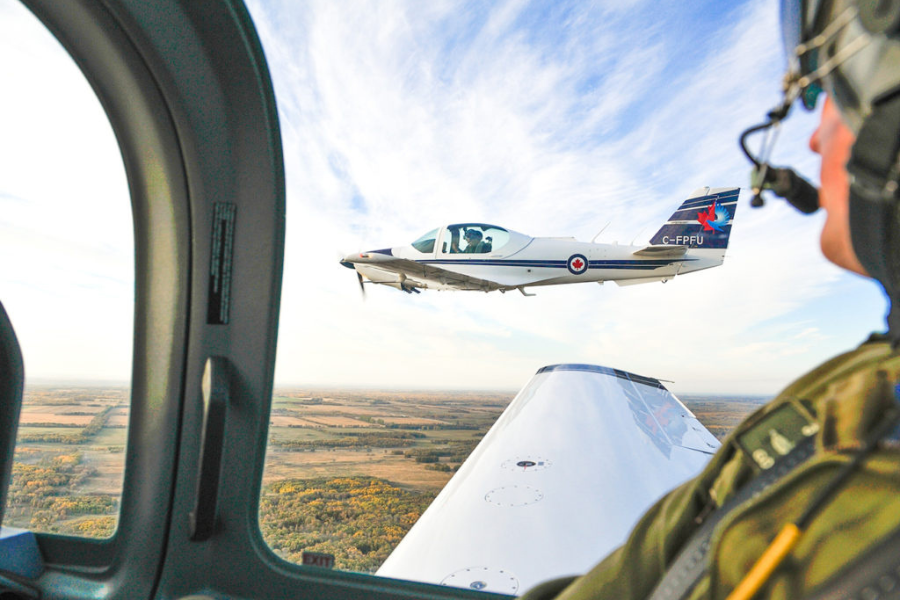By LISA GORDON
The Canadian government has given the green light to two competitors in the race to provide next-generation training and in-service support for the Royal Canadian Air Force (RCAF).
On Feb. 11, the government released the official Request for Proposals (RFP) for the Future Aircrew Training (FAcT) program. In the running for one of the largest contracts ever issued by the Department of National Defence (DND) are two candidates: SkyAlyne, a partnership between Canadian companies KF Aerospace and CAE; and the Babcock Leonardo Canadian Aircrew Training team.
The government expects to award the multi-billion-dollar FAcT contract in 2023. Now that the RFP has been released, both bidders are hard at work crafting proposals that will meet the stated requirements and provide the next generation of RCAF aircrews with a solid foundation for their operational careers.
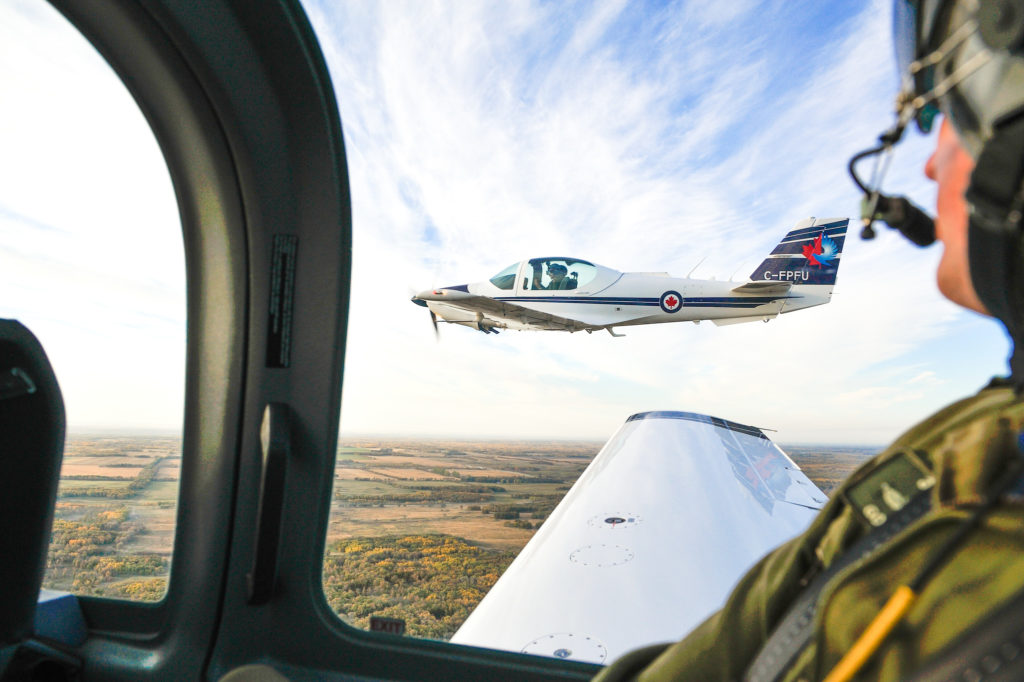
These requirements include Industrial and Technological Benefits (ITB) stipulations mandating the winning suppliers to make investments in Canadian industry equal to the amount of the contract. The ITB program aims to foster the growth and development of Canadian companies in areas related to training and simulation, and in-service support.
In addition, bidders will be asked to submit an Indigenous Participation Plan that outlines how their proposed RCAF training and support program will positively impact Indigenous businesses and communities.
Crafting a holistic solution
Abir Kazan, senior capture manager at SkyAlyne, told Skies the RFP contained “a few tweaks, but there were no big surprises because we’ve had such a collaborative effort with the project office over the past several years leading up to the release of the RFP.”
SkyAlyne partners KF Aerospace and CAE are the incumbents in the race, currently delivering RCAF pilot training and maintenance support programs through two separate contracts.
Allied Wings, a team led by KF Aerospace, has handled the Contracted Flying Training and Support (CFTS) Services program in Southport, Manitoba, since 2005. The CFTS program provides RCAF ground school, simulator, and flight instruction — from ab initio to advanced multi-engine and rotary-wing pilot training — along with all associated support services.
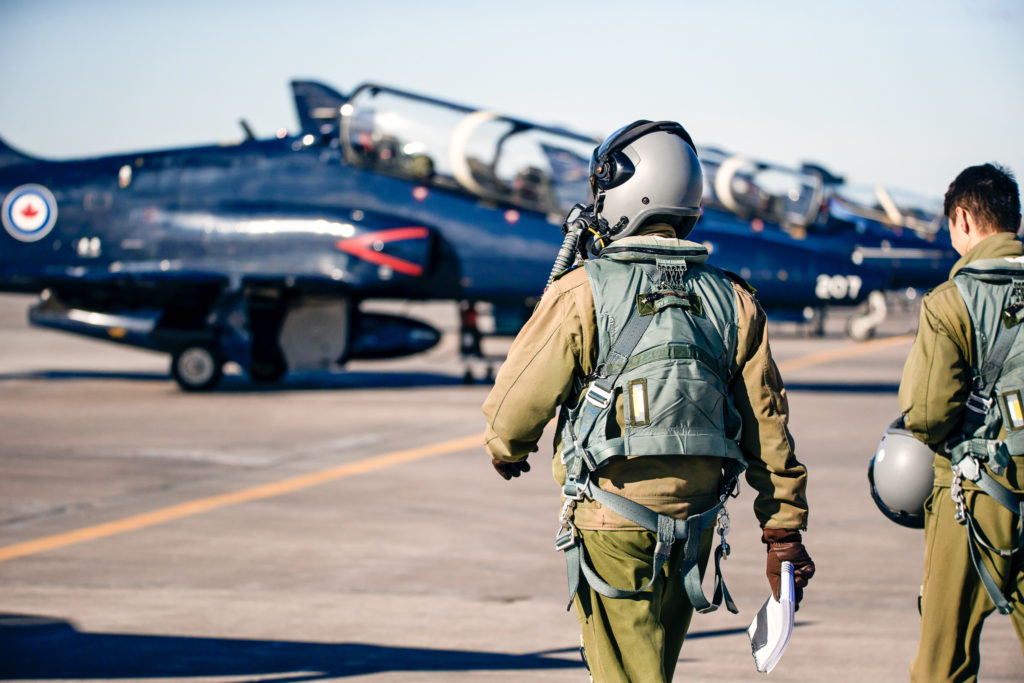
CAE has delivered the NATO Flying Training in Canada (NFTC) program since 2015, supporting flight training for future military pilots, including fighter pilots, for the RCAF and its allies. Located at 15 Wing Moose Jaw, Saskatchewan, and 4 Wing Cold Lake, Alberta, the NFTC contract was recently extended through 2027 to align its expiry with the CFTS program. This will allow the government to simultaneously transition both contracts into one new FAcT contract allocation.
SkyAlyne general manager JD Richard said the biggest benefit of SkyAlyne’s proposal is that the team already has experience managing two successful RCAF training programs.
“(CAE and KF) have been training RCAF pilots now for 20-plus years, combined. We have relationships with the community, subcontractors and support services,” he said. “Our team is ready to take on the challenge of the next program. When FAcT comes in, there will be a period that could carry some transition risk for the RCAF, but that risk is reduced with SkyAlyne since we are already training Canada’s military pilots.”
As a major Canadian maintenance, repair, and overhaul (MRO) organization, KF Aerospace will contribute expert capability in engineering, airworthiness and aircraft maintenance. Montreal-based simulation giant CAE is a world leader in pilot, aircrew, and maintenance training, as well as simulation incorporating emerging tech such as virtual and augmented reality. The SkyAlyne team includes additional Canadian companies that will contribute to the program.
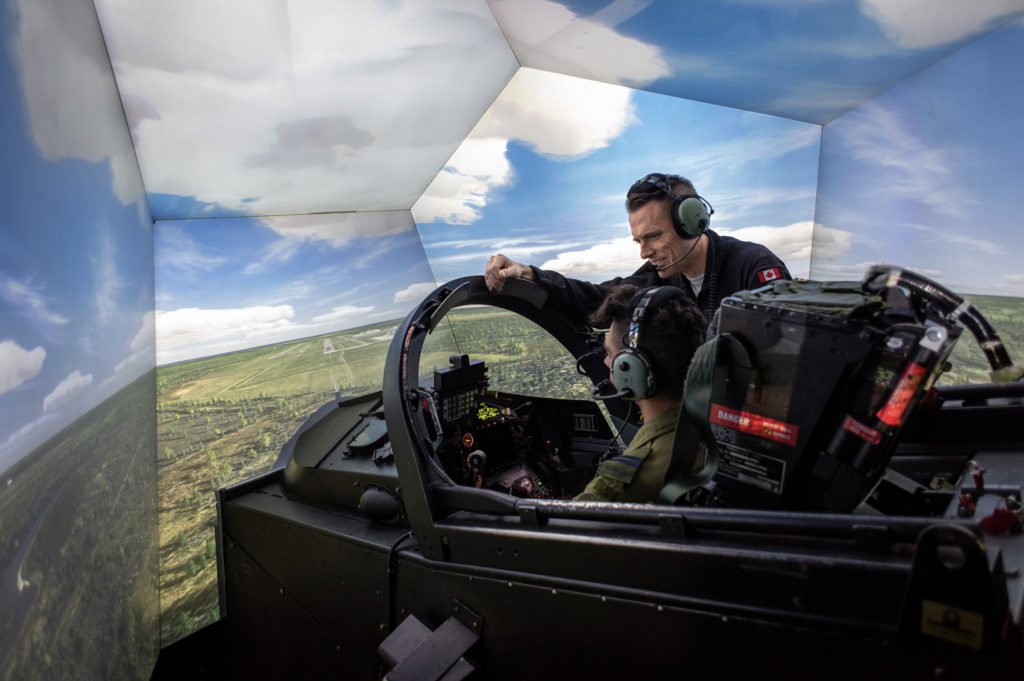
Kazan said the SkyAlyne team has been preparing for the FAcT RFP since 2018, when KF Aerospace and CAE signed their partnership. There are more than 100 people working on the proposal from both parent companies and the seven additional subcontractor companies on the SkyAlyne team.
“Over the past several years, we’ve been assembling resources and personnel,” she reported. “Now that the RFP is out, we’re buckling down and focusing on writing that winning solution. There are thousands of requirements we need to meet, including mandatory criteria and rated criteria. It’s not only about live flying, simulation, and ground-based training, but all the site support services, too, like maintenance, housing, air traffic control, recreation, grass cutting, snow removal, and emergency services.”
Richard said SkyAlyne offers the most holistic solution to meet Air Force goals.
“As well as supporting Canadian industry, we are offering modern and innovative solutions drawn from the experience of our full team. We see no gaps in our proposal and will be offering the best forward-thinking solution for the RCAF.”
He said those solutions will be focused on current and future students, keeping in mind that the contract duration is expected to be at least 20 years.
“Some of the students who will come through here haven’t even been born yet. We can’t predict all the ways training technology will change, but we will be ready to work with our partners to be flexible and meet future needs.”
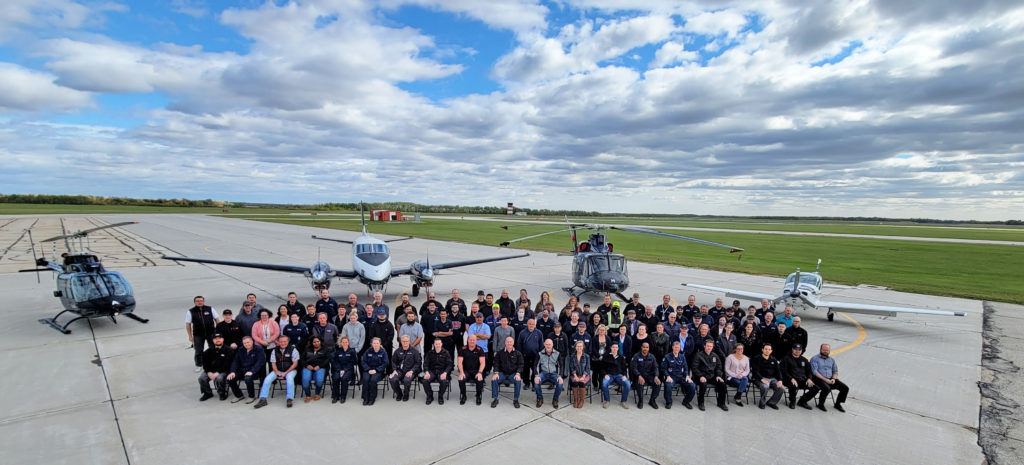
When it comes to ITBs, Kazan believes the SkyAlyne team has an edge thanks to its existing relationships from coast to coast to coast, and more specifically with Indigenous communities in Saskatchewan and Manitoba.
“We have the right team, and the pieces are in place, so we just have to write the proposal. This is a top priority at our companies; it’s beyond business for us because it’s in our own backyards. We are leaving no stone unturned.”
Building sustainable partnerships
SkyAlyne’s only competitor in the FAcT program bid is the Babcock Leonardo Canadian Aircrew Training (BLCAT) team, a joint venture between two established providers of military aircrew training.
“We are delighted to confirm having received the Future Aircrew Training RFP from the Government of Canada,” said Jana Lee Murray, FAcT program director at BLCAT. “Supported by a team of leading industry partners from coast to coast, Babcock Leonardo Canadian Aircrew Training is committed to providing a superior integrated end-to-end training solution for the FAcT program in a way that helps push Canada’s economic and strategic goals forward.”
Murray said the two companies are offering a tailored solution to the RCAF, one that will be delivered locally by Canadians. She told Skies that BLCAT will draw on its existing ties with the Canadian military and its global expertise to deliver a “modern, comprehensive solution based on our extensive experience as a leading provider of fixed-wing, rotary-wing, and mission training civil and military services.”
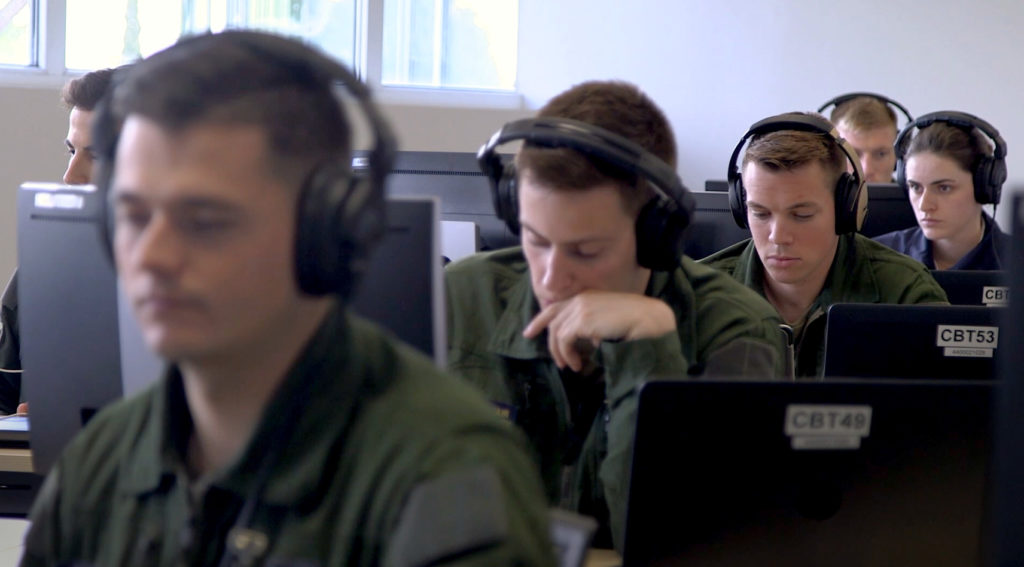
Last year, Babcock supported the delivery of more than 43,000 hours of military flight training. The company is a global leader in aerospace, defense, and security solutions, helping its customers improve the capability, reliability, and availability of critical assets.
As one of the world’s most predominant OEMs, Leonardo has delivered more than 2,000 training aircraft during its 60 years of experience in aviation training. The company is a leader in providing military professional training services for pilots, operators, and maintainers. It ensures the most effective use of platforms and systems by incorporating live virtual constructive and distributed simulation, facilitated through a network of regional training centers and academies.
“Together, Babcock Canada and Leonardo Canada have created a team that is uniquely positioned to deliver world-class military pilot and aircrew training that is tailored to meet the specific requirements of the Royal Canadian Air Force,” said Murray.
Recent announcements have indicated new additions to the BLCAT team, including Top Aces, L3Harris Technologies, FlightSafety International, and Athabasca Catering Limited Partnership.
When it comes to meeting Canada’s ITB requirements, Murray said working with Canadian small- and medium-sized business and collaborating with Indigenous businesses, peoples, and communities is a priority.
“Our team has been in Canada for over 50 years, delivering complex solutions to the Government of Canada. For FAcT, our Industrial Technological Benefit and value proposition will maximize Canadian content value, and our solution will be delivered in Canada by Canadians for the next 25 years.”
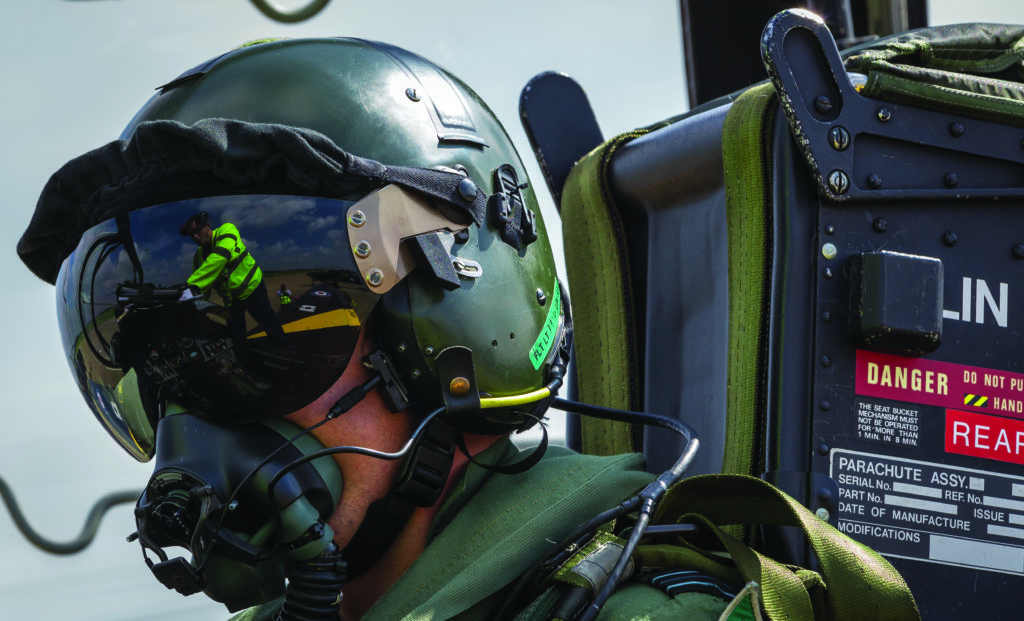
To augment Canada’s global position in the training and simulation sector, BLCAT is proposing net new investments that will develop and export Canadian capability in enabling technologies such as artificial intelligence, cyber resilience, and clean technologies.
“Our team has a well-established domestic supply chain that spans from coast to coast,” continued Murray. “Our solution will provide economic opportunities for Canadians across the country and will focus on inclusivity and opportunity for under-represented groups and Indigenous peoples and businesses over the long term.”
The BLCAT team recognizes that FAcT is a generational program and there is an opportunity to engage with stakeholder groups at the grass roots level. The goal will be to implement skills development and training programs along with an inclusive workforce. FAcT will require a wide range of skills and competencies, including skilled labor trades, professional services, and advanced technical skills, such as aircraft mechanics and qualified flying instructors.
“FAcT provides the opportunity to forge sustained partnerships with Indigenous communities and businesses and to build a foundation for long-term success for many generations,” observed Murray.
Leveraging its worldwide experience, BLCAT is offering the RCAF innovative training solutions, comprehensive operational and mission support, and next-generation training aircraft and ground-based systems. Murray said any transitional risk will be countered by the partners’ vast experience in delivering military aviation programs and related services.
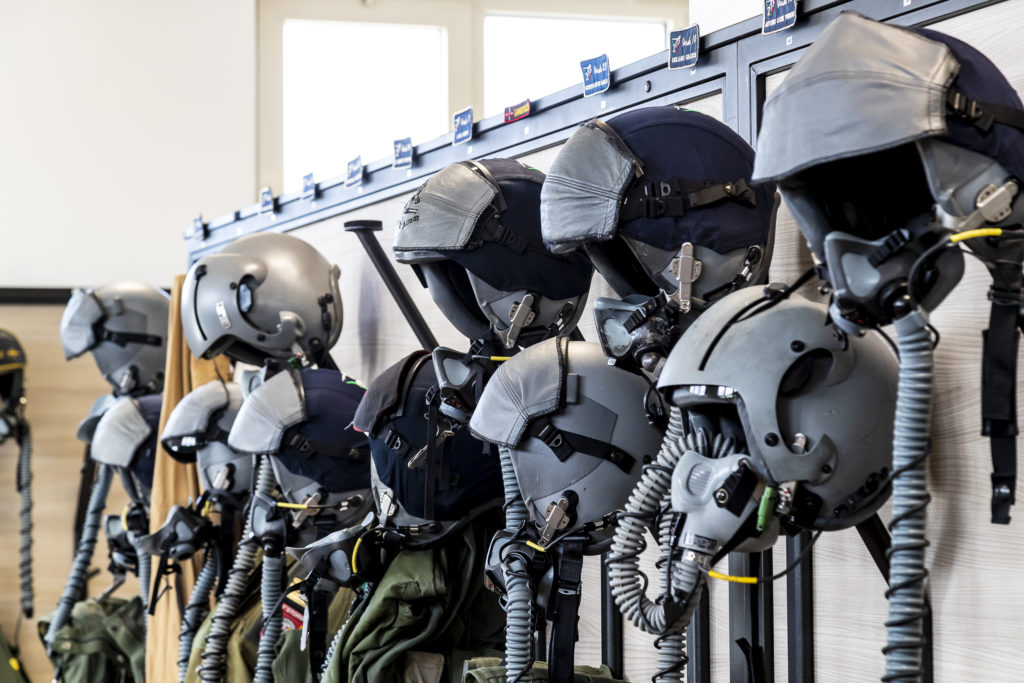
Now, the team is working hard to prepare its response to the FAcT RFP. As BLCAT continues to add Canadian small businesses to the fold, engage with Indigenous communities, and invest in developing the future workforce, Murray said it will “ensure Canada is at the core of every decision.”
The deadline to file initial FAcT program proposals is Oct. 11, 2022. After that, there will be an opportunity to clarify and refine submissions, with the massive contract set to be awarded in 2023.
***
This article originally appeared in SKIES Magazine in March, 2022


